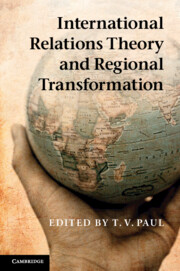Book contents
- Frontmatter
- Contents
- Figures and tables
- About the contributors
- Acknowledgments
- Part 1 Introduction
- Part 2 Realist perspectives
- Part 3 Liberal perspectives
- Part 4 Constructivist perspectives
- Part 5 Eclectic perspectives
- 10 The transformation of modern Europe
- 11 Top-down peacemaking
- Part 6 Conclusions
- Index
- References
10 - The transformation of modern Europe
banalities of success
Published online by Cambridge University Press: 05 June 2012
- Frontmatter
- Contents
- Figures and tables
- About the contributors
- Acknowledgments
- Part 1 Introduction
- Part 2 Realist perspectives
- Part 3 Liberal perspectives
- Part 4 Constructivist perspectives
- Part 5 Eclectic perspectives
- 10 The transformation of modern Europe
- 11 Top-down peacemaking
- Part 6 Conclusions
- Index
- References
Summary
No region in the history of the world has created more insecurity – more wars, more deaths, in its heartland and throughout the world – than has Europe, especially in its dark and vicious twentieth century. The realization that the core of Europe has become a zone of peace and prosperity can only make one weep with joy. What needs to be explained is – precisely – a transformation, that is, not just a return to the stability that had marked most of the nineteenth century but the creation of a new world, in large part populated by states of a different character. It can be said immediately that sophisticated accounts of this transformation have already been offered, perhaps the best of them within international relations theory being that of Norrin Ripsman, whose general viewpoint is presented in this volume. I am largely in agreement with his eclectic view, stressing as it does the importance of realist considerations in the creation of a zone of peace and of liberal factors that then solidified this achievement in such a way as to create the transformation in question. However, there are differences at the margins: I will stress the continuing role of geopolitics, both American and European; emphasize tensions within the transatlantic community; show skepticism toward the extent of European liberalism; add elements of sociological class analysis; and thicken the analysis at all points.
- Type
- Chapter
- Information
- International Relations Theory and Regional Transformation , pp. 233 - 254Publisher: Cambridge University PressPrint publication year: 2012
References
- 1
- Cited by



